X: @the_news_21
In a significant electoral development, forty-one candidates secured their seats unopposed in the Rajya Sabha across twelve states, reflecting a diverse representation of political leaders in the Upper House of Parliament. Among the notable figures making their debut in the Rajya Sabha are senior Congress leader Sonia Gandhi, BJP chief JP Nadda, Union Minister Ashwini Vaishnaw, and diamond baron Govindbhai Dholakia.
The unopposed victories spanned multiple states, showcasing a broad spectrum of political affiliations and regional dynamics. Maharashtra witnessed a clean sweep as all six candidates, including Congress turncoat Ashok Chavan, emerged victorious without facing opposition. Similarly, Bihar, West Bengal, Madhya Pradesh, and Gujarat also saw all candidates in the fray securing unopposed wins.
However, competitive races ensued in Uttar Pradesh, Karnataka, and Himachal Pradesh, where no candidates withdrew their nominations, leading to closely contested battles for available seats. Notably, the BJP emerged as the frontrunner with twenty members elected unopposed, followed by the Congress with six seats.
The unopposed victories underscore the intricacies of India’s political landscape, with strategic alliances and electoral dynamics shaping the composition of the Rajya Sabha. The smooth transitions of power in some states contrast with keenly contested races in others, highlighting the diversity of India’s democratic processes.
The newly elected members bring a wealth of experience and expertise to the Rajya Sabha, poised to contribute significantly to legislative discourse and policymaking. Sonia Gandhi’s entry into the Upper House marks a historic milestone, representing a continuation of the Gandhi family’s legacy in Indian politics, while JP Nadda’s elevation reaffirms his prominent role within the BJP.
The composition of the Rajya Sabha reflects a mosaic of political ideologies and regional representations, underscoring the complexities of India’s federal structure. As the newly elected members assume their responsibilities, their collective contributions are anticipated to shape the course of legislative agenda and governance in the country.
List of Elected Candidates:
- Maharashtra:
- Ashok Chavan (BJP)
- Medha Kulkarni (BJP)
- Ajit Gopchade (BJP)
- Milind Deora (Shiv Sena)
- Praful Patel (NCP)
- Chandrakant Handore (Congress)
- Bihar:
- Sanjay Kumar Jha (JD(U))
- Dharmshila Gupta (BJP)
- Bhim Singh (BJP)
- Manoj Kumar Jha (RJD)
- Sanjay Yadav (RJD)
- Akhilesh Prasad Singh (Congress)
- West Bengal:
- Sushmita Dev (TMC)
- Sagarika Ghose (TMC)
- Mamata Thakur (TMC)
- Md Nadimul Haque (TMC)
- Samik Bhattacharya (BJP)
- Madhya Pradesh:
- L. Murugan (BJP)
- Umesh Nath Maharaj (BJP)
- Banshilal Gurjar (BJP)
- Maya Naroliya (BJP)
- Ashok Singh (Congress)
- Gujarat:
- JP Nadda (BJP)
- Jashwantsinh Parmar (BJP)
- Mayank Nayak (BJP)
- Govind Dholakia (BJP)
- Andhra Pradesh:
- G Babu Rao (YSR Congress)
- Y V Subba Reddy (YSR Congress)
- M Raghunath Reddy (YSR Congress)
- Telangana:
- Renuka Chowdhury (Congress)
- Anil Kumar Yadav (Congress)
- V Ravichandra (BRS)
- Rajasthan:
- Sonia Gandhi (Congress)
- Chunnilal Garasiya (BJP)
- Madan Rathore (BJP)
- Odisha:
- Ashwini Vaishnaw (BJP)
- Debashish Samantray (BJD)
- Subhashish Khuntia (BJD)
- Uttarakhand:
- Mahendra Bhatt (BJP)
- Chhattisgarh:
- Devendra Pratap Singh (BJP)
- Haryana:
- Subhash Barala (BJP)
Also Read: Sharad Pawar Criticizes PM Modi’s Parliamentary Attendance and Alleges Misuse of Power

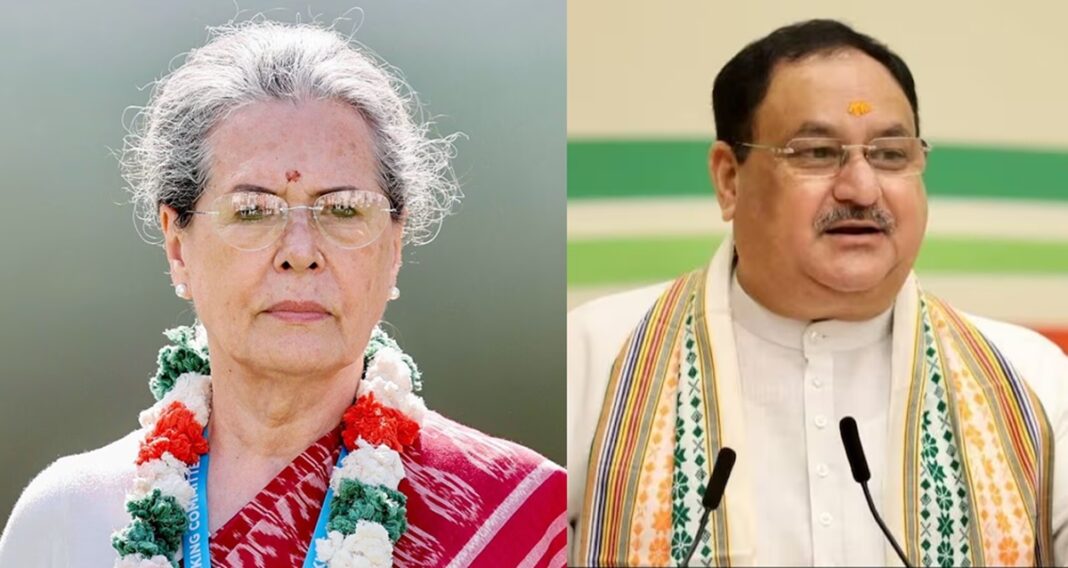

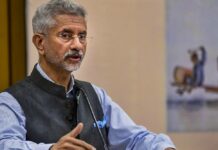
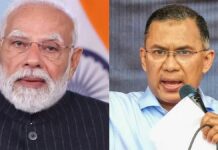
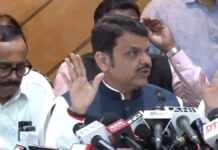
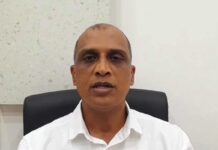

where to buy clomid tablets cost of clomid pill buying clomiphene without dr prescription how to buy generic clomiphene price get generic clomiphene prices cost of cheap clomiphene prices clomid cost australia
This is the kind of topic I enjoy reading.
buy zithromax cheap – buy tetracycline for sale metronidazole for sale online
semaglutide uk – periactin order online generic periactin
buy motilium 10mg online cheap – sumycin generic order cyclobenzaprine online cheap
buy inderal paypal – purchase methotrexate online order methotrexate 5mg without prescription
clavulanate canada – atbio info ampicillin over the counter
order esomeprazole 20mg generic – anexamate.com order esomeprazole 20mg without prescription
medex pills – blood thinner losartan 50mg without prescription
generic meloxicam – https://moboxsin.com/ mobic 7.5mg pill
buy deltasone online – https://apreplson.com/ prednisone 20mg brand
cheap erectile dysfunction – fast ed to take home remedies for ed erectile dysfunction
buy forcan no prescription – https://gpdifluca.com/# purchase diflucan online
buy cenforce 100mg online cheap – cenforce pills cenforce drug
cialis tadalafil & dapoxetine – https://ciltadgn.com/# what does a cialis pill look like
ranitidine 150mg generic – online ranitidine 300mg canada
cialis black review – strong tadafl do you need a prescription for cialis
Greetings! Extremely productive advice within this article! It’s the crumb changes which choice turn the largest changes. Thanks a lot towards sharing! https://gnolvade.com/
how to order viagra online – click buy viagra online now
The thoroughness in this piece is noteworthy. dexamethasone vs prednisone
This is the kind of delivery I turn up helpful. https://ursxdol.com/get-cialis-professional/
More posts like this would make the blogosphere more useful. https://prohnrg.com/product/cytotec-online/
The thoroughness in this section is noteworthy. https://ondactone.com/simvastatin/
Greetings! Very gainful advice within this article! It’s the crumb changes which wish make the largest changes. Thanks a portion quest of sharing! http://bbs.dubu.cn/home.php?mod=space&uid=395576
forxiga sale – on this site dapagliflozin 10 mg without prescription
orlistat pill – site order orlistat 120mg for sale
I am not certain the place you are getting you info,
but great topic. I needs to spend some time lesrning more or working oout more.
Thanks for great innfo I was on the lookout for this information for my mission. https://Glassi-app.blogspot.com/2025/08/how-to-download-glassi-casino-app-for.html
The sagacity in this ruined is exceptional. https://myrsporta.ru/forums/users/qvpuq-2/
You can protect yourself and your stock nearby being cautious when buying panacea online. Some pharmacy websites manipulate legally and provide convenience, privacy, rate savings and safeguards to purchasing medicines. buy in TerbinaPharmacy https://terbinafines.com/product/medrol.html medrol
I couldn’t resist commenting. Well written! amlodipine us
You can conserve yourself and your dearest by way of being alert when buying pharmaceutical online. Some pharmacy websites operate legally and sell convenience, secretiveness, rate savings and safeguards to purchasing medicines. http://playbigbassrm.com/fr/
I couldn’t resist commenting. Warmly written!
利用强大的谷歌蜘蛛池技术,大幅提升网站收录效率与页面抓取频率。谷歌蜘蛛池
采用高效谷歌外推策略,快速提升网站在搜索引擎中的可见性与权重。谷歌外推
Với giao diện mượt mà và ưu đãi hấp dẫn, MM88 là lựa chọn lý tưởng cho các tín đồ giải trí trực tuyến.
online slots secrets cap
best online casino games in usa
casinos online real money no deposit
mgm grand betting https://betmgm-play.com/ betmgm NC
mcluck Oklahoma mcluck Iowa mcluck Connecticut